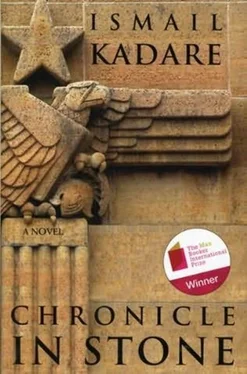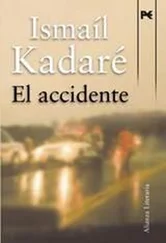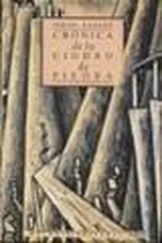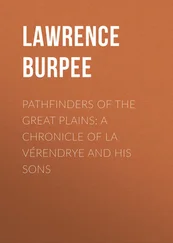Ismaíl Kadaré - Chronicle in Stone
Здесь есть возможность читать онлайн «Ismaíl Kadaré - Chronicle in Stone» весь текст электронной книги совершенно бесплатно (целиком полную версию без сокращений). В некоторых случаях можно слушать аудио, скачать через торрент в формате fb2 и присутствует краткое содержание. Жанр: Современная проза, на английском языке. Описание произведения, (предисловие) а так же отзывы посетителей доступны на портале библиотеки ЛибКат.
- Название:Chronicle in Stone
- Автор:
- Жанр:
- Год:неизвестен
- ISBN:нет данных
- Рейтинг книги:4 / 5. Голосов: 1
-
Избранное:Добавить в избранное
- Отзывы:
-
Ваша оценка:
- 80
- 1
- 2
- 3
- 4
- 5
Chronicle in Stone: краткое содержание, описание и аннотация
Предлагаем к чтению аннотацию, описание, краткое содержание или предисловие (зависит от того, что написал сам автор книги «Chronicle in Stone»). Если вы не нашли необходимую информацию о книге — напишите в комментариях, мы постараемся отыскать её.
Chronicle in Stone — читать онлайн бесплатно полную книгу (весь текст) целиком
Ниже представлен текст книги, разбитый по страницам. Система сохранения места последней прочитанной страницы, позволяет с удобством читать онлайн бесплатно книгу «Chronicle in Stone», без необходимости каждый раз заново искать на чём Вы остановились. Поставьте закладку, и сможете в любой момент перейти на страницу, на которой закончили чтение.
Интервал:
Закладка:
Then something so wonderful happened that we would have thought it impossible. The angry crowd started shouting, “Shoot the lousy dog down, Avdo!”
Uncle Avdo had walked out to the gate. His eyes flashed. He swallowed repeatedly. His wife followed in alarm. The plane was flying slowly over the city. Somehow Avdo found himself in the midst of the crowd, which pulled him along the steep road leading up to the citadel.
From every side came the cry: “Shoot! Shoot the pig down!”
The path led directly to the tower where the anti-aircraft gun sat. Uncle Avdo, now at the head of the crowd, entered the citadel gates.
“Hurry, Uncle Avdo! Hurry, before it goes!” we kids were shouting.
They didn’t let us into the citadel. We stayed outside, clapping our hands impatiently, for the plane was heading off towards the mountains.
“It’s going, it’s going!” everyone shouted.
But suddenly the plane turned and started coming close again. It really seemed to be flying at random.
Sudden voices rang out from afar: “His glasses! His glasses!”
“Quick, his glasses!”
“Uncle Avdo’s glasses!”
Someone tore down the hill and, a moment later, came charging back up just as fast, carrying Uncle Avdo’s antique spectacles.
“He’s about to shoot!” someone shouted.
“The plane’s coming back!”
“Like a lamb to the slaughter.”
“Shoot, Uncle Avdo. Blow him away!”
The antique anti-aircraft gun fired. Its sound was no more powerful than our screams. Our hearts were bursting with joy. Everyone was shouting now, even the old ladies.
It fired again. We had expected the plane to come crashing down after the first shot, but no. It continued to fly slowly over the city. It was as if the pilot had dozed off. He was in no hurry.
At the third shot the plane was right over the main square.
“Now he’ll get him!” a raucous voice shouted. “There he is, right under our noses!”
“Shoot the lousy dog down!”
“Get the son of a bitch!”
But the plane wasn’t hit. It flew off north. The gunner fired a few more rounds before the plane was completely out of range.
“Uncle Avdo hasn’t got the hang of it yet,” someone said.
“It’s not his fault. He’s used to the old ones.”
“What, the Turkish guns?” asked Ilir.
“Maybe.”
We sighed. Our throats were parched.
The anti-aircraft gun fired again, but the plane was too far away now. There was a hateful indifference in its flight path.
“The pig’s getting away,” someone burst out.
Tears welled up in Ilir’s eyes. In mine too. When the final shell was fired and the crowd began to disperse, a little girl started sobbing.
The people who had gone up to the tower were coming down now, with Avdo Babaramo in the lead. He was pale. His hands trembled as he mopped his brow with a handkerchief. His haggard gaze wandered, not focusing on anything. Avdo’s old wife made her way through the crowd and came up to him.
“Come, my darling,” she called. “Come and lie down. You must be exhausted. This is not for you. Not with your heart trouble. Come on.”
He wanted to say something, but he couldn’t. His mouth was dry. Only when he had crossed the threshold of his gate did he turn to look back. Setting his jaw in a half-smile, half-grimace, he muttered with great effort:
“It was not to be.”
The people left.
“It was not to be,” the gunner repeated, passing his gaze over all those present as if seeking their approval before they left him alone with his defeat.
“Don’t worry about it, Uncle Avdo,” a boy told him. “Some day it will be our turn. And we won’t miss.”
Uncle Avdo closed his door.
The crowd dispersed.
OLD SOSE’S NEWS
My joints hurt. We will have a hard winter. War has broken out everywhere, a murderous war all the way to the Celestial Kingdom, where the people are yellow. The English are sending banknotes and gold to all countries. Red-bearded Stalin smokes his pipe and ponders, ponders. “You know a lot, Englishman,” he says, “but I know just as much as you.” “Oh, my dear Hançe,” said Majnur, the lady of Kavo, to poor old Hançe the day before yesterday, “when will this war with the Greeks be over? I’m dying for a Lake Ioanina eel.” “Enough, wretch,” snapped Hançe, “my children are starving and you talk of Ioanina eels.” They quarrelled and cursed each other: you ragamuffin, you Italian lackey, you this, you that. As soon as the town hall re-opens Avdo Babaramo will be fined for firing the gun without authorisation. They say the war with the Greeks will be over before the first mountain snowfall. The Kailis’ daughter-in-law is pregnant again. Both of the Puses’ daughters-in-law are in their ninth month, as if they had worked it out together. Granny Hava is bed-ridden. “I won’t live to see winter,” she says. Poor old Lady Qazim finally died too. May the earth be kind to her.
TEN
It rained all the next day. The city lay stunned after the previous day’s defeat, its roofs and eaves drenched. Sadness trickled down the slates. Unyieldingly grey, it slid down the steep roofs, steadily renewed by the fresh sadness that poured from sorrowful reservoirs in the sky.
The next morning the city awoke to find itself occupied again. The Greeks were back. This time their mules, cannon and supplies were everywhere. On the metal pole atop the prison tower, where the Italian tricolour had flown, the Greek flag now waved. At first it was hard to make it out. The wind never stopped blowing, but it never blew in just one direction so that the banner could unfurl and be seen properly. Towards noon, when the wind shifted and the rain started again, the outlines of the large white cross could at last be seen on the weary silk.
“Did I have to live so long just to see Greek jackboots?” Grandmother lamented. “Why didn’t I die last winter?”
We were in the main room. I had never seen such despair in her eyes, in all her features. I couldn’t think of anything to say to her. I took the round lens from my pocket and put it over one eye. The distant cross over the prison tower fluttered as if it were angry. Then it displayed itself in full, quite brazenly. It was just a pattern on a piece of silk. I wondered how two crossed lines on a piece of fabric could arouse such grief. A piece of material waving in the breeze had plunged an entire city into consternation. It was strange.
That evening people spoke of nothing but the Greeks. Terrible predictions were made. Many years ago, before the monarchy and even before the republic, the Greeks had occupied the city for a few weeks. Many people had been killed. Then as now, that same flag with the white cross had flown from the prison tower. And since the flag with the cross was back, all the rest would follow.
Xivo Gavo’s little window stayed lit far into the night. The old chronicler’s neighbours all thought he was describing the return of the Greeks. It later turned out that he had devoted only a single sentence of his chronicle to the event: “On 18 Nov. the G. entered the city.” No one could account for this laconic mention of such a calamity, and still less for his use of a single letter to represent the multitude of Greeks.
The next morning the cross was still there, dominating the city. The symbol of evil had been raised. Everyone expected the worst.
The Greeks began to walk around the streets in their khaki uniforms. Ordinances signed “Katantzakis” were again posted in the square. The coffee houses were packed with Greek sounds. They were thin and sharp, full of s ’s and th ’s that cut like razors. All the soldiers carried knives. Treachery hovered in the air. Impending slaughter. The city would have to be sluiced with a rubber hose. But it was raining. Maybe they wouldn’t need the hose.
Читать дальшеИнтервал:
Закладка:
Похожие книги на «Chronicle in Stone»
Представляем Вашему вниманию похожие книги на «Chronicle in Stone» списком для выбора. Мы отобрали схожую по названию и смыслу литературу в надежде предоставить читателям больше вариантов отыскать новые, интересные, ещё непрочитанные произведения.
Обсуждение, отзывы о книге «Chronicle in Stone» и просто собственные мнения читателей. Оставьте ваши комментарии, напишите, что Вы думаете о произведении, его смысле или главных героях. Укажите что конкретно понравилось, а что нет, и почему Вы так считаете.












